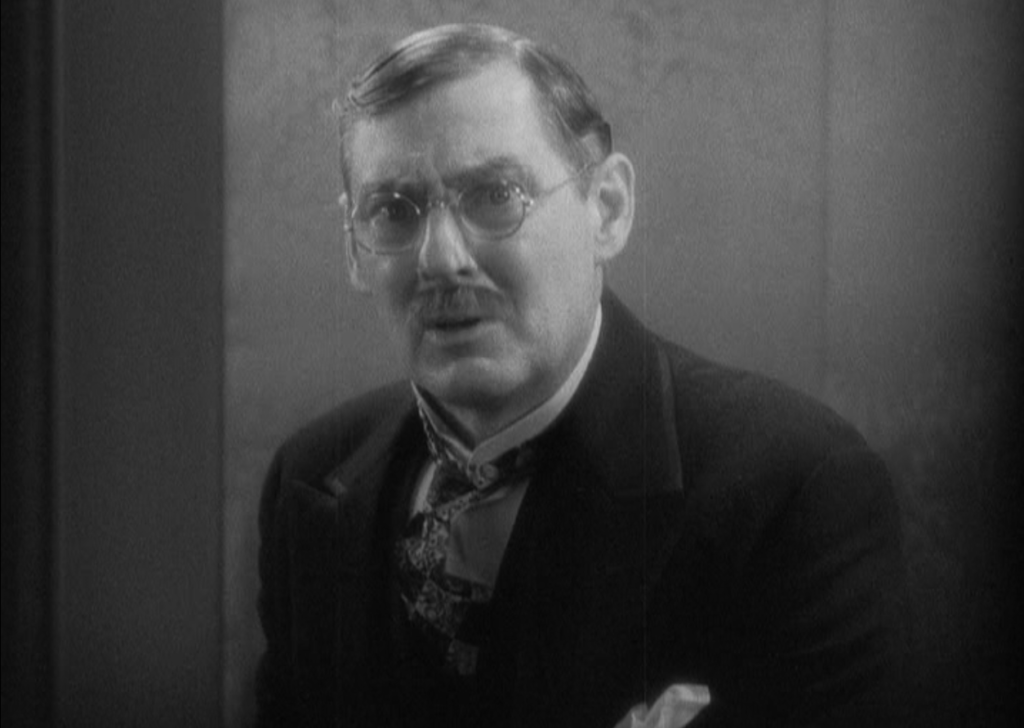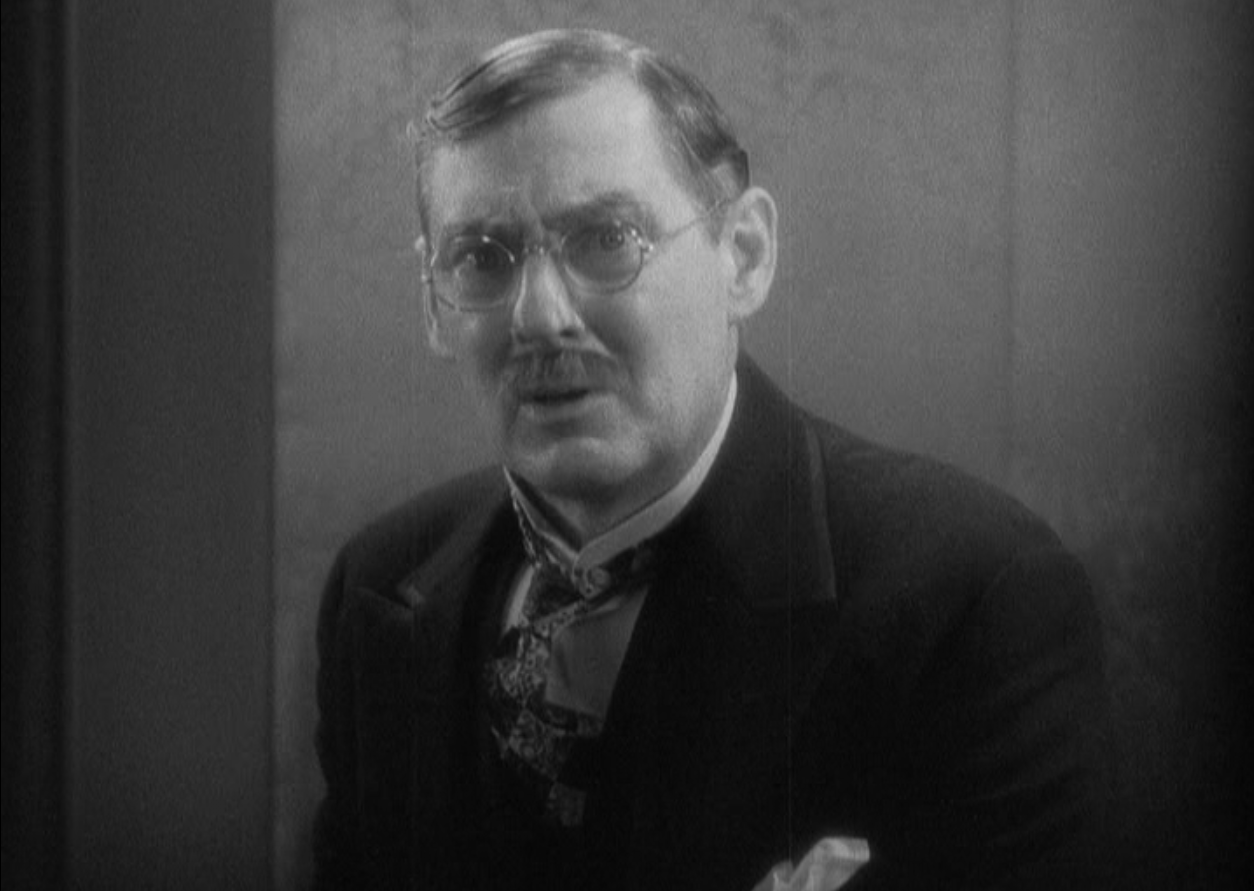Movie Review: Grand Hotel (1932) directed by Edmund Goulding
“People come, people go. Nothing ever happens.” So speaks Dr. Otternschlag (Lewis Stone). long-time resident of the Grand Hotel in Berlin. But he spends much of his time in his cups to deal with the pain of the facial scarring he got in the Great War, and to be honest he misses a lot of what’s going on around him.

There are five guests of particular note at this time. The Baron Felix von Geigern (John Barrymore) is in some ways a relic of an older, more genteel Germany. Now he has lost the family fortune, and owes quite a large sum on money to very bad people, so he has been forced to turn thief.
Madame Grusinkaya (Greta Garbo) is a Russian prima ballerina. Though she is very talented, she feels like she’s losing her edge, and has fallen into depression. This has naturally affected her performance, worsening her mental state, and she’s contemplating suicide. If she can’t pull out of her tailspin, she may be dismissed from the troupe!
General Director Preysing (Wallace Beery) is an industrialist of some note, but his wealth and power come from the company he directs and he got his position by marrying the owner’s daughter. He needs to forge a corporate merger here at the hotel, which relies on him getting a deal put through with a Manchester cotton firm. He’s got several balls in the air, and trying to keep them all going is wearing on his temper.
Otto Kringelein (Lionel Barrymore) is a lowly bookkeeper for Preysing’s concern. He could ordinarily never afford to stay at the Grand Hotel. But Otto is terminally ill, with perhaps a week or two to live. He’s decided to cash in his modest life savings, and truly live for the last few days of his life, as he’s never been able to or dared before.
Flaemmechen (Joan Crawford) also could never usually afford to stay in the Grand Hotel. She’s a temporary agency stenographer that Preysing engages to do his secretarial work while he’s in town, and he…generously…engages a room near his for her to use during this time period. Flaemmchen quickly becomes aware that Preysing would also like more personal services from her. She has to navigate keeping him happy while not wanting him to touch her at all, and having a thing for the handsome and debonair Baron.
Also, Senf, the head porter (Jean Hersholt), has a wife in the hospital struggling through a difficult pregnancy, but the hotel management will not give him the time off to be with her during the day.
Something very much is going to happen at the Grand Hotel!
This was the first “star-studded” movie that wasn’t a musical revue, defying the industry wisdom of only having one or two main stars. It did take a bit of negotiating: Garbo was credited with last name only to show her preeminence, while Wallace Beery was the only actor allowed to use a German accent for his part. The script was adapted from the play and original novel by Vicki Baum Menschen im Hotel which she’d based on her own time as a chambermaid at Berlin hotels. It did well in theaters, getting a “Best Picture” Oscar.
First off, kudos to the set design team. The Art Deco circular front desk and main lobby look fabulous, and the various rooms look like the height of early 1930s hotel luxury. The budget is right there on the screen.
The cast is also fine, led by Garbo being gloriously over the top as an equally over the top dancing star.
The Baron honestly isn’t at all good at the “thief” part of being a noble thief, but does well at being noble, showing his true character being kind to the ballerina, the dying man and the stenographer. Beery is considerably less sympathetic, but also has his humanizing moments where we see the vulnerability behind his cruel actions. Otto gets to shine as he finds his courage, at last being able to tell his boss off–Preysing may not recognize Kringelein, but the bookkeeper knows what a dub hand at business the rich man is.
Joan Crawford is sizzling by 1932 standards, and many of her hotter scenes were cut by censors.
At the end, the guests we’ve been following leave the Grand Hotel, not all of them of their own volition, but Senf learns that he is now a father, mother and son doing well. And there are new guests arriving, with their own stories. Dr. Otternschlag repeats his opening words, but with extra irony.
This isn’t one of the immortal classics, but it’s a very good movie, which spawned imitators and parodies. The one on the same DVD I watched was “Nothing Ever Happens”, in which Warner Brothers manages to condense the plotline down to a twenty-minute musical comedy version. Hollywood was entering its “Golden Age” and you can see a lot of that here.
Politics is conspicuously not discussed, save for some grumbling about how the last war turned out. But modern audiences cannot help knowing what’s going to happen in Berlin soon, and the likely fate of many of the characters.
Content note: Murder, suicide is discussed, Preysing comes very close to forcing Flaemmchen to have sex with him before he’s distracted. Alcohol abuse.
Not, perhaps, a must-watch, but recommended to fans of the various stars, and people who enjoy the “hotel” subgenre.

